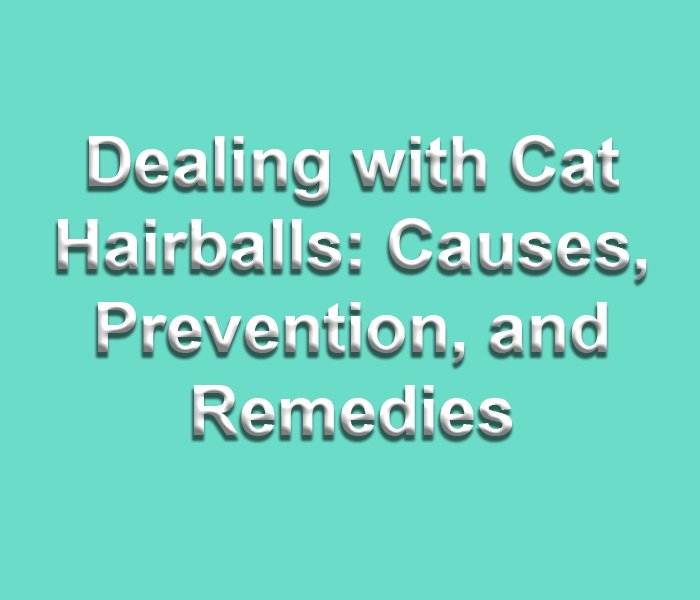As a cat owner, you may be familiar with the unpleasant sight and sound of your cat coughing up a hairball. While hairballs are a common issue among cats, they can be uncomfortable and potentially lead to more serious problems if not properly addressed. In this blog post, we will explore the causes behind cat hairballs, effective prevention strategies, and helpful remedies to keep your furry friend happy and hairball-free.
Understanding the Causes of Cat Hairballs:
Hairballs occur when cats groom themselves and swallow loose hair. Their rough tongues are designed to remove dirt and loose hair from their coats, but sometimes they end up ingesting a significant amount of fur. The swallowed hair then forms a clump in the stomach, which is eventually vomited as a hairball. Some factors that contribute to the formation of hairballs include:
- Grooming habits: Cats with long or thick coats are more prone to hairballs because they naturally shed more fur.
- Seasonal shedding: Cats tend to shed more during certain seasons, increasing the likelihood of hairball formation.
- Excessive grooming: Cats that groom excessively due to stress, boredom, or skin issues are more likely to develop hairballs.
Preventing Cat Hairballs:
Prevention is key when it comes to managing cat hairballs. By incorporating the following strategies into your cat’s routine, you can minimize the frequency and severity of hairball incidents:
- Regular brushing: Brushing your cat’s coat regularly helps remove loose fur before it can be ingested. Aim for a grooming session at least once or twice a week, increasing the frequency during shedding seasons.
- Hairball control diets: Specialized cat foods formulated to reduce hairball formation can be beneficial. These diets typically contain increased fiber content to aid in digestion and the elimination of ingested fur.
- Oral lubricants: Consult your veterinarian about oral lubricants that can be given to your cat. These lubricants help move hair through the digestive system, reducing the likelihood of hairball formation.
- Promote hydration: Encourage your cat to drink plenty of water to keep their digestive system functioning smoothly. Proper hydration helps in the digestion and passage of fur through the intestines.
Remedies for Cat Hairballs:
If your cat is already experiencing discomfort from hairballs, there are several remedies you can try to alleviate the issue:
- Petroleum jelly or hairball gels: These products can be given to your cat orally and help lubricate the digestive system, facilitating the passage of hairballs.
- Commercial hairball remedies: There are various over-the-counter remedies available in the form of treats or pastes that aid in the elimination of hairballs. These products often contain ingredients that help break down and reduce the size of hairballs.
- Dietary supplements: Some supplements, such as fiber or digestive enzymes, can be added to your cat’s food to promote healthy digestion and reduce hairball formation.
Conclusion:
Cat hairballs may be a common occurrence, but they can be managed effectively with the right preventive measures and remedies. By understanding the causes behind hairballs, implementing preventive strategies like regular grooming and proper nutrition, and using remedies when necessary, you can help your cat enjoy a hairball-free and comfortable life. If hairballs persist or become severe, it’s recommended to consult with a veterinarian. They can provide further guidance and assistance in addressing the issue. With a little extra care, you can keep your feline companion happy, healthy, and free from hairball-related troubles.

